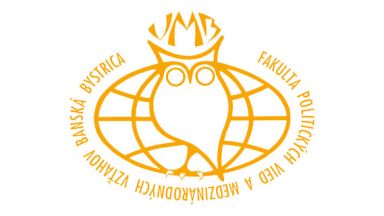Transformácia nemeckej politickej scény a reflexia parlamentných volieb v roku 2017
TRANSFORMATION OF GERMAN POLITICS AND REFLECTION OF 2017 PARLIAMENTARY ELECTIONS
Marek Lenč
***
Politické vedy, Volume 22, Number 1/2019, pages 178-204
DOI: http://doi.org/10.24040/politickevedy.2019.22.1.178-204
Recommended form for quotation of the article / Odporúčaná forma citácie článku:
LENČ, M. 2019. Transformácia nemeckej politickej scény a reflexia parlamentných volieb v roku 2017. In Politické vedy. [online]. Vol. 22, No. 1, 2019. ISSN 1335–2741, pp. 178-204. Available at: http://doi.org/10.24040/politickevedy.2019.22.1.178-204
ABSTRACT
Research on transformation of German political arena has been quite intensive over the last years. Several general trends could beobserved in last decades, but acceleration of more significant changes was seen especially in regard with the political consequences of migration and refugee crisis. The 2017 German parliamentary elections led to a confirmation of a new political reality in Germany and some unexpected results in modern post-war German history. As an outcome of the 2017 elections six political parties entered Bundestag in 2017. The winner, conservative Union of the CDU/CSU, achieved strongest electoral result with 32.9% of the casted votes, but both large parties (CDU/CSU and SPD) were politically weakened and experienced one of the lowest electoral results since their establishment. Fragmentation of political scene, weakening of traditional large political parties, success of new party (AfD), and the return of the traditional political party (FDP) into the German parliament, complicated political relations on the left side of German political spectrum and ruled out simple post-election coalition negotiations. These eventually led to the historically longest government building process of 4th Merkel's government that lasted 171 calendar days. Hence, the study provides an analysis of the campaign, outcome of the parliamentary elections, its interpretations in the context of German, European political development and their impact on German politics. The revival of the Great coalition was reflected in the promotion of some new domestic policies and a support for continuity of the German foreign and European policy.The recent dynamics led to a stabilization of internal situation in both CDU and CSU, ideological crisis of SPD, brought reinforcement of Green party and confirmed fragmentation of German political scene into six relevant political parties which will represent the most important political forces for the next German parliamentary elections.
Key words: German parliamentary elections 2017, campaign, results, Great Coalition, Angela Merkel, Martin Schulz
Súbory na stiahnutie
| Názov | Veľkosť | Formát | Dátum | Zoradiť podľa: |
|---|---|---|---|---|
| Transformácia nemeckej politickej scény a reflexia parlamentných volieb v roku 2017 | Veľkosť: 608 kB | Formát: pdf | Dátum: 5.1.2024 |





